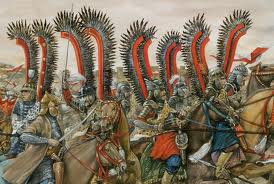

Just then the Viennese soldiers charged out of Vienna. They had massive feathered wings on their backs. These were brave Polish soldiers with armour like knights.

The Polish Winged Hussars thundered into the Ottoman lines. Then came the sound of thousands of horses hooves. A loud fluttering echoed across the battlefield. The Ottomans fought them and the battle was in doubt. The Ottomans quickly turned around to face them.Īt first the Germans charged down the hills. But would they be in time?Īs the Ottoman army gathered for its final assault they heard trumpets in the hills around Vienna. Meanwhile the Holy Roman Emperor had been asking other countries for help. They blasted holes in the walls of Vienna. In Europe it faced the Holy Roman Empire whose capital was in Vienna.ģ50 years ago the Ottomans decided to attack Vienna. It ruled a massive area in the middle east, Turkey and the Balkans. The mighty Ottoman Empire had conquered the old Eastern Roman Empire and the great city of Constantinople. This was one of the most important battles and sieges in history. Subscribe to the newsletter to have military news, updates and resources delivered straight to your inbox.Sophie (age 8) and Ellie (age 6) tell the story of the siege of Vienna from 1683. Whether you're looking for news and entertainment, thinking of joining the military or keeping up with military life and benefits, has you covered. Keep Up With the Best in Military Entertainment

It's military life presented like never before. We Are The Mighty (WATM) celebrates service with stories that inspire.

5 ways Marines are like ancient Spartans.Today, their spirit lives on with the Polish Land Forces' 11th Armored Cavalry Division. The militias didn't have tanks, but the farmers did have horses, rifles and an undying will to fight. Since Poland was being attacked from all sides and had little room to breathe, local militias needed to pick up some of the slack. Officially, the Winged Hussars ended in the 1770s because of political reforms, but heavily geared-out, horse-mounted, Polish troops existed throughout World War I and World War II. They Never Really Went AwayĪs tanks took over the battlefield, people generally stopped riding into battle on horses. The dust settled, and thousands of the Khanate Tatars lay dead on the floor while less then a hundred Hussars had fallen. Six hours of intense fighting later, and the Crimean Khanate started to retreat. The Crimean forces raided the half-defended town and ran out of ammunition so fast that they needed to turn enemy arrows fired at them into improvised rounds for their long rifles. This breathless account of a 17th century battle from Potop (The Deluge), by Henry Sienkievich captures well the furious charge of the famed Polish Winged Hussars. The Hussars had only a single night to turn the town into a fortress, to defend themselves with no supplies and no backup. Want to know who undoubtedly pulled off a heroic victory when faced with 62-to-1 odds? The Polish Winged Hussars.Ī 400-strong Hussar unit was being attacked on two fronts by the 25,000+ Crimean Khanate forces, and they were backed into the tiny village of Hodow. The Spartans were bad*sses, yes, but some elements of their most famous tale are questionable. But when you start looking deeper into it, you'll quickly realize there are plenty of things they left out for the sake of the comic (and, later, film adaption), like the actual numbers of Greeks aiding them and how poorly trained most of the Persians were. They Put the Battle of Thermopylae to ShameĮveryone praises the Spartans for pitting 300 troops against the mighty Persian army. The Hussars eventually got their own firearms, which meant their enemies now had to deal with a heavily armored Hussars charging at them with spears, swords, war hammers and rifles. The Hussars never really got the memo, though, and they'd still charge into battle, decked out in armor that could take a bullet or two and close the distance before their enemy got a chance to reload. No single piece of military tech changed warfare quite like firearms.įirearms instantaneously made arrows obsolete and swords pointless - if you can keep your distance. They Adapted Extremely Well to FirearmsĪs new technologies are introduced to the battlefield, old tactics get thrown out. In an era when it was unlikely that you'd ever even see a neighboring city, what were you supposed to make of the rapidly approaching, heavily armed legion of vengeful, glittering angels? 3. Hussars were shock troops, meaning that they needed to instill as much fear as they could as fast and effectively as they could - before the enemy has a chance to realize what's going on.


 0 kommentar(er)
0 kommentar(er)
